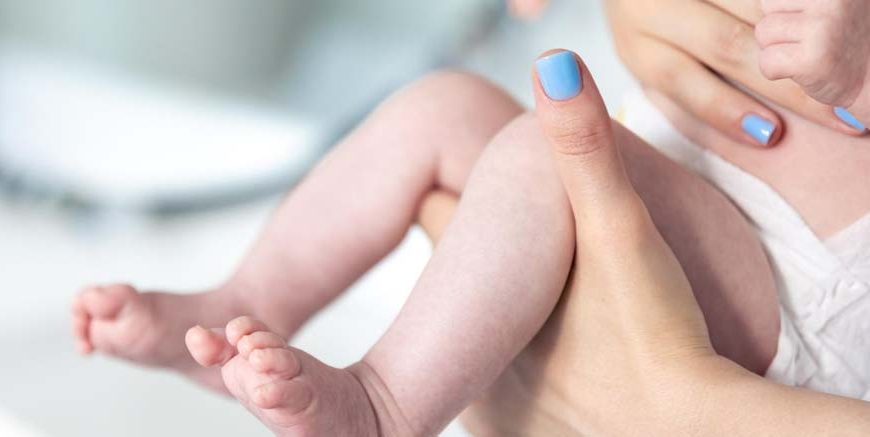Gentle caresses and the soft touch of your baby’s skin are moments of pure joy for any parent. But when the same thing turns into unrelenting scratching that seems to come out of nowhere? Yes, itchy skin is a common concern for most parents, and it can turn those adorable cooking sessions into moments of frustration for both you and your little one. Fear not. This article will provide you with the knowledge and skills you need to ease itching on baby skin and restore happiness (and sleep!) to your home.
Understanding the Causes of Body Itching in Babies
Before looking into solutions, it’s important to figure out what could irritate your baby’s skin. Dry skin, dermatitis, insect bites, allergies, and occasionally even the materials of their clothes are common causes of body itching. The itching on baby skin may occasionally be a reaction to a recently introduced skincare product. Treating the issue successfully starts with identifying its underlying causes of body itching.
Home Remedies for Itching for Babies
Combatting those uncomfortable itching your little one faces can be stressful, but you don’t always need to reach for medicated creams. Nature offers a treasure trove of gentle yet effective home remedies for itching for babies to bring back those happy giggles. So, how to relieve itching in babies? Here are a few home remedies:
- Coconut Oil: Nature’s Moisturizing Champion
- Aloe Vera Gel: Cool Nature’s Kiss on Sore Skin
- Humidifier: the silent saviour
Dry skin is prime real estate for itch monsters, so hydrating it is key. Virgin coconut oil is a treasure from nature that saves the day! Its rich, saturated fats reduce dryness and leave the skin feeling soft and supple by deeply moisturizing and nourishing it. A dab of coconut oil applied to sensitive skin during massages relieves irritation and brings back the fun faster than you can say “coconut water!”
Rashes and sunburns can leave your baby’s skin feeling on fire. Enter aloe vera gel, nature’s cooling hero! Dab fresh aloe vera gel directly on the affected area for instant relief. Its calming properties soothe inflammation, reduce redness, and remove the sting from itching. Remember, always choose fresh aloe vera over pre-packaged gels for maximum benefit.
For a baby’s sensitive skin sometimes, the dryness in the air can be the cause for the itching. A humidifier can help in this situation. Adding essential moisture to the air helps prevent your little one’s skin from getting dry and flaky, keeping those bothersome itches at bay. Place one in your baby’s room, especially during dry seasons or with the air conditioning on, and watch the itches evaporate with the humid mist.
How to Relieve Itching in Babies with Commercial Products
When natural remedies don’t cut it for a baby’s persistent itches, consider these commercial solutions to bring relief:
- Natural Anti-Itch Cream for Babies:
- Medicated Creams:
These creams are gentle on baby skin, free of harsh chemicals, and loaded with natural ingredients such as calendula for anti-inflammatory activity, chamomile for soothing characteristics, and lavender for calming benefits. Make sure they have organic components and safety certifications.
Your paediatrician may suggest medicated creams for tough cases like eczema. These provide focused relief and should be used exactly as prescribed.
Remember, these creams are potent allies, so always use them exactly as your doctor directs. Don’t exceed the recommended dosage!
Preventive Measures for Baby’s Skin Care
Preventing skin issues in babies is key, as their skin is far more sensitive than adults. Here are some effective strategies:
- Bath Time Buddies:
- Clothed in Comfort:
- Moisture Misters:
- Steer clear of Known Allergens:
Forget harsh, soapy villains! Swap them for baby-sized heroes – mild soaps and shampoos that are fragrance-free and gentle as a kitten’s purr. No nasties here, just gentle cleansing that protects the natural oils in your little one’s skin, keeping it soft and balanced. Regular baths with these gentle friends will make itchy tantrums a thing of the past!
Ditch the scratchy wool monsters and synthetic sirens! Dress your little explorer in cottony clouds – soft, breathable clothes that let their skin sing. Loose-fitting outfits are the perfect partners-in-crime, allowing air to dance freely and preventing overheating. No more trapped heat or itchy discomfort, just pure snuggly-wiggly joy!
Dryness is the itch monster’s favourite playground, so keep those water cannons firing! After bath time, when your baby’s skin is extra delicate, gently massage it with a light, hypoallergenic oil or lotion. Think of it as building a magical shield against dryness and irritants, keeping your little one’s skin as smooth as a freshly peeled peach.
Observe how your infant’s skin responds to various substances. Try to eliminate particular items from your baby’s surroundings if you find that they irritate them—be it meals, detergents, or materials. Proactively recognizing and avoiding certain allergens can stop skin problems in their tracks.
When to Consult a Doctor
Knowing when a skin condition calls for medical attention is crucial. See a paediatrician if your baby experiences skin itching that does not go away with home remedies or if there are additional symptoms such as fever, edema, or pus. These signs may point to an underlying illness that requires specialised care. A paediatrician can accurately diagnose your child and create a safe and efficient treatment plan just for them.
Baby’s skin is extremely delicate. For something so delicate, special care and attention is needed. Understanding the reasons for itching and using both home and commercial therapies can effectively relieve your baby’s suffering. Remember understanding the root cause and then focusing on preventive measures is most important. Also when in doubt, consult a paediatrician. Don’t think twice.
For more such informative blogs, head over to www.eurokidsindia.com!
*Please note: Every baby is unique and so is their skin condition and health. While the information provided offers general advice and insights, we urge you to consult your paediatrician before following any remedy for your baby.














